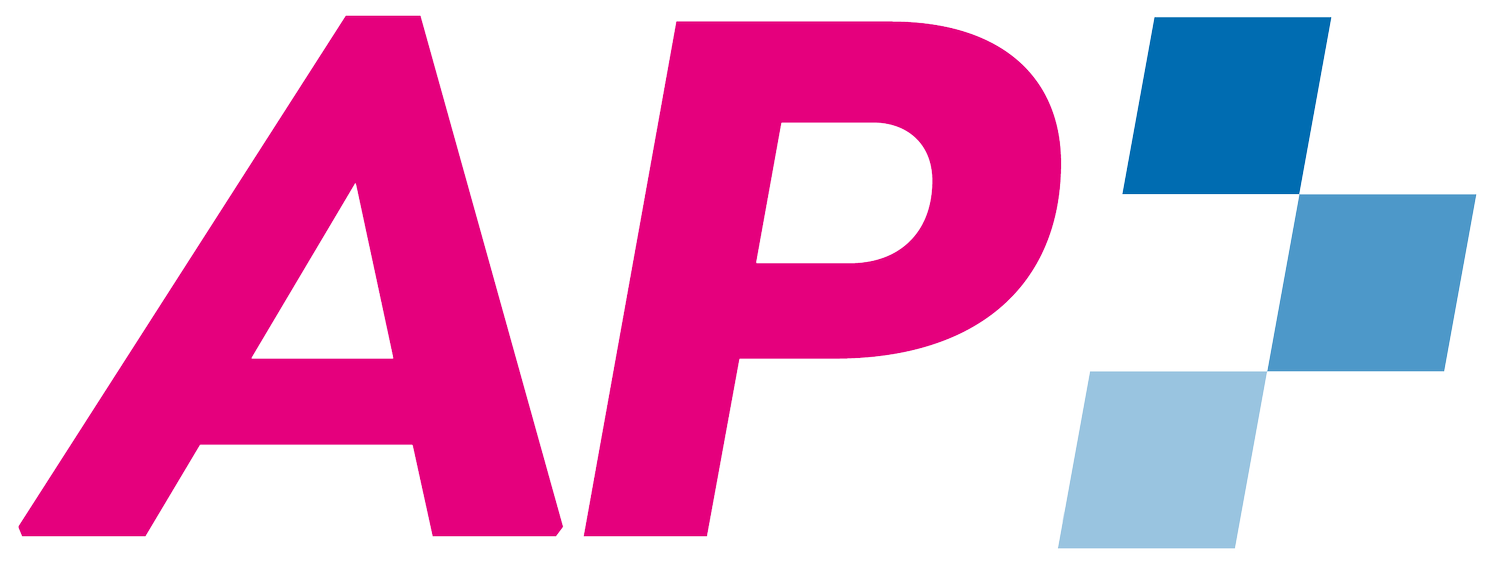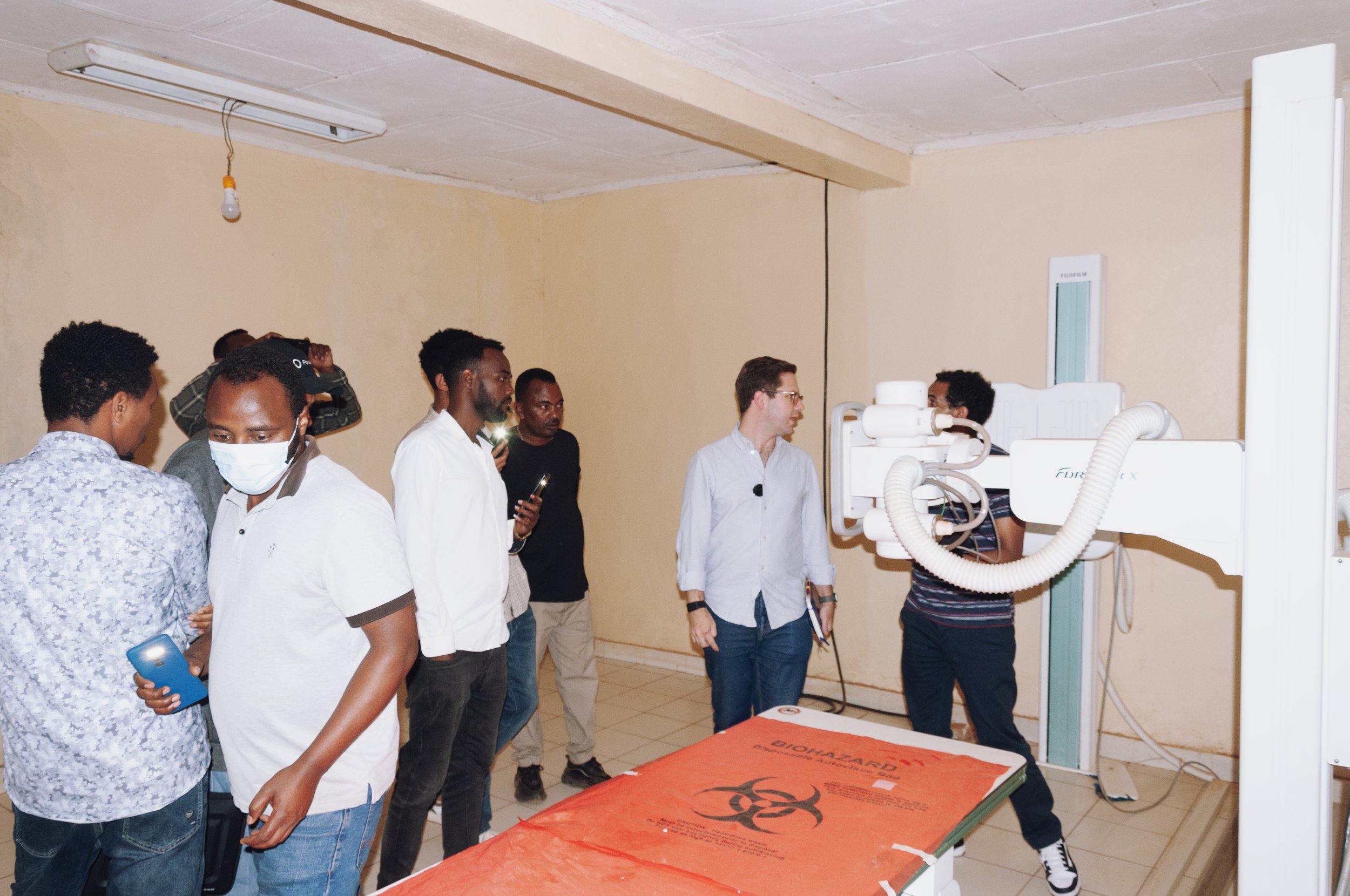Kick starting new projects in Ethiopia
This new X-ray machine sits unused at Mudula Hospital due to lack of electricity.
Twelve transformative days, countless insights, and one purpose: a small group of Aid Pioneers recently embarked on a journey through Ethiopia, forging connections, identifying challenges, and laying the groundwork for impactful projects in 2025.
By bringing together Ethiopian and international partners, such as Solar Energy Foundation, ADRA, ForAfrika, WEEMA, to name a few, we are set to solarize three hospitals (totaling approx. 230 kWp) and deliver medical supplies worth approx. €1 million - initiatives that promise to support healthcare in a country still recovering from one of the most deadly conflicts of this century.
Challenge and opportunity
Ethiopia, Africa's second-most populated country with 132 million residents, carries the scars of its recent past. Nowhere is this more evident than in its healthcare and energy sectors. In the Tigray region, 75% of healthcare facilities have been damaged or completely destroyed, leaving communities vulnerable and medical professionals grappling with unimaginable obstacles.
The impact of electricity outages during surgery extends far beyond inconvenience - it becomes a matter of life and death. This broader crisis underscores the challenges faced by hospitals lacking reliable power: the inability to cool vaccines, perform surgeries, or operate essential medical devices jeopardizes critical healthcare delivery and patient safety.
“When the electricity cuts out during surgery, it’s not just an inconvenience - it’s a matter of life and death,” Alexis Broschek, Co-Founder and Managing Director of Aid Pioneers, explains after speaking with numerous doctors whose harrowing stories underscore the severity of this issue. Without reliable electricity, hospitals are unable to cool vaccines, perform surgeries, or even keep basic medical devices operational.
Blackouts are endemic, and diesel generators - the primary alternative - are an expensive, unsustainable solution. At Ayder Hospital in Mekelle, for instance, diesel costs devour the equivalent of 7,000 yearly wages. Across Ethiopia, countless X-rays, incubators, and oxygen concentrators are rendered useless by power surges when electricity sporadically returns.
A brighter path
Amid these challenges, sunlight offers hope. Ethiopia’s abundant sunshine makes solar energy a viable, cost-effective, and environmentally friendly alternative. Yet, the adoption of solar systems remains low, hindered by three main barriers:
Human Capital: With few trained solar engineers in Ethiopia, the availability of expertise to install and maintain larger complex systems is limited. Moreover, we learned that there is a general unawareness of solar’s potential as a reliable solution, leading to insufficient demand.
Access to Capital: Solar systems require high upfront investment. Although they lead to significant cost-savings in the long term, hospitals oftentimes cannot afford the upfront payments due to extortionate monthly diesel costs.
Expensive Supply Chains: While solar vendors are abundant in most Western countries, this is not the case in Sub Saharan Africa. Ethiopia has one of the world's most restrictive customs regimes, making the import of high-quality solar systems and medical supplies especially challenging and expensive.
“It’s not just about installing panels; it’s about breaking cycles of dependency on diesel and empowering local communities to sustain these systems long-term,” explains Girmay Berhe, Aid Pioneers solar engineering lead.
Empty diesel barrels at Ayder Hospital in Mekelle.
How Aid Pioneers is making a difference
Our’ approach combines technical expertise, innovative financing, and strategic partnerships to create sustainable solutions:
Affordable Solar Systems: By leveraging partnerships with German solar equipment suppliers such as Enpal, Aid Pioneers’s team designs and builds world-class solar systems at 70% less than local vendors have quoted. These systems come with warranties of over 10 years, ensuring reliability.
Blended Financing: As we mostly focus on larger systems (30-300 kWp), there is a substantive upfront investment required. However, we solve this by combining loans and grants. Hospitals save money on diesel and repay part of the upfront solar costs over time, while grants cover the remainder. This approach makes solar both accessible and financially sustainable as it allows us to re-use the funds for the next projects.
Medical Supplies: With reliable electricity, hospitals can maximize the impact of medical equipment. Aid Pioneers' partnerships with organisations like Project CURE and Partners for World Health allow us to source these supplies at around 5% of market value and ship them to Ethiopia at no thereby further increasing the reach and cost-effectiveness of our projects. Our freight forwarding partners such as flexport have allowed us to ship to countless regions around the globe at no cost, thereby further increasing the reach and cost-effectiveness of our projects.
What’s next?
In 2025, Aid Pioneers will kick start its first Ethiopian projects: solarizing three hospitals and delivering critical medical supplies worth approximately €1 million. These initiatives are just the beginning!
“Our ultimate vision is that no Ethiopian doctor is forced to stop a surgery mid-procedure, no vaccine is wasted due to a blackout, and no patient is turned away because a hospital can’t afford diesel,” Alexis Broschek.
Stay tuned for updates as we continue to bring energy and hope to Ethiopia in 2025!
Aid Pioneers’ Solar team collects data for Mudula High School.




